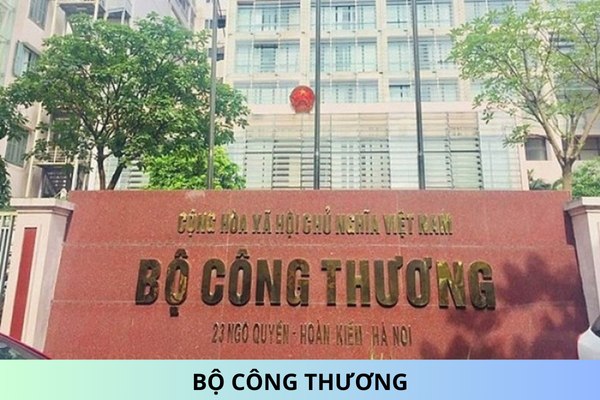What are regulations on salary table based on working positions after salary reform in Vietnam?
May I ask if the current five salary tables based on working positions after the salary reform have been established. Which allowances have been annulled during the implementation of the salary reform in Vietnam?
What is paying salaries based on working positions in Vietnam?
Implementing salary payment based on working positions for cadres, civil servants, public employees, and armed forces personnel is one of the prominent aspects of the salary reform policy outlined in Resolution 27/NQ-TW in 2018.
Currently, there is no specific definition or terminology provided on how salary payment based on working positions is understood. However, based on advancements and the concept of working positions for cadres, civil servants, public employees, it can be explained as follows:
[1] Regarding cadres, civil servants
Pursuant to Clause 3 Article 7 of the Law on Cadres and Civil Servants in 2008 stipulating working position as follows:
Interpretation of terms
In this Law. the terms and phrases below are construed as follows:
...
3. Working position means a job linked with a civil servant title, post, structure and rank as a basis for determining the payroll of, and arranging jobs for civil servants in, an agency, organization or unit.
...
[2] Regarding public employees
Pursuant to Clause 1 Article 7 of the Law on Public Emplloyees in 2010 stipulating working positions as follows:
Working positions
1. Working position is a work or task associated with a corresponding professional title or managerial post, serving as a basis for determining the number and structure of public employees to be recruited, employed and managed in a public non-business unit.
...
Therefore, salary payment based on working positions can be understood as determining the salary level for cadres, civil servants, public employees based on the working positions they hold. Positions that require higher levels of education, skills, and responsibilities will receive higher salaries.
Salary payment based on working positions will replace the current salary scale system, following the principle of converting old salaries to new ones, ensuring that salaries are not lower than the current level.
What are regulations on salary table based on working positions after salary reform in Vietnam? - image from internet
What are regulations on the five salary tables based on working positions after the salary reform in Vietnam?
The 2024 salary reform is an important event that significantly impacts the income of cadres, civil servants, public employees, and armed forces personnel. According to Resolution 27-NQ/TW in 2018, the salary reform aims to:
- Connect salaries with the value of labor, ensuring a reasonable correlation between regions, sectors, positions, and professions.
- Meet the requirements of administrative reform and establish a modern, professional, streamlined, effective, and efficient administrative system.
- Improve the material and spiritual lives of cadres, civil servants, public employees, and armed forces personnel.
The 2024 salary reform will be implemented through the following measures:
- Changing the salary structure: Basic salary will account for about 70% of the total salary fund, allowances will account for about 30% of the total salary fund, and bonuses will make up about 10% of the annual salary fund.
- Establishing a new salary system based on working positions, leadership positions, and titles.
- Converting old salaries to new ones, ensuring that salaries are not lower than the current level.
Specifically, there will be five new salary tables based on working positions after the salary reform, including:
- One salary table for leadership positions, applicable to cadres, civil servants, public employees holding leadership positions (elected and appointed) within the political system from the central to commune level.
- One professional and vocational salary table based on civil service categories and professional titles, applicable to civil servants and government employees without leadership positions. Each civil service category and professional title will have multiple salary levels.
There will be three salary tables for armed forces personnel, including:
- One salary table for military officers, officers, and non-commissioned officers in the police force (based on military or police ranks and grades).
- One salary table for professional military personnel and technical personnel in the police force.
- One salary table for defense workers and police officers (maintaining the salary ratio with administrative officials as it currently stands).
With these changes, it is expected that the salaries of cadres, civil servants, public employees, and armed forces personnel will be significantly improved. Specifically, the basic salary will increase, allowances will be streamlined and unified, and bonuses will be increased.
If there are no further changes, the comprehensive salary reform is scheduled to be implemented from July 1, 2024, which may introduce five new salary tables based on working positions for cadres, civil servants, public employees, and armed forces personnel, in accordance with Resolution 27-NQ/TW in 2018.
However, there is currently no official information available regarding the new salary tables based on working positions for these individuals when implementing the salary reform from July 1, 2024.
Therefore, it is necessary to wait for further information from relevant authorities to fully assess the impact of the salary reform on the income of the affected individuals.
Which allowances have been annulled during the implementation of the salary reform in Vietnam?
Based on the provisions in Subsection 3.3.1, Section 2 of Resolution 27-NQ/TW in 2018, certain allowances will be abolished when implementing the salary reform for civil servants, as follows:
- Seniority allowance (excluding the military, police, and ciphers to ensure salary correlation with cadres and civil servants).
- Leadership position allowance (as the salary for leadership positions within the political system is determined separately).
- Vietnamese Communist Party and political-social organization work allowance, and official duty allowance (as they have been included in the basic salary).
- Hazardous and dangerous allowance (as the conditions of hazardous and dangerous work have been included in the profession-based allowances).
Best regards!











